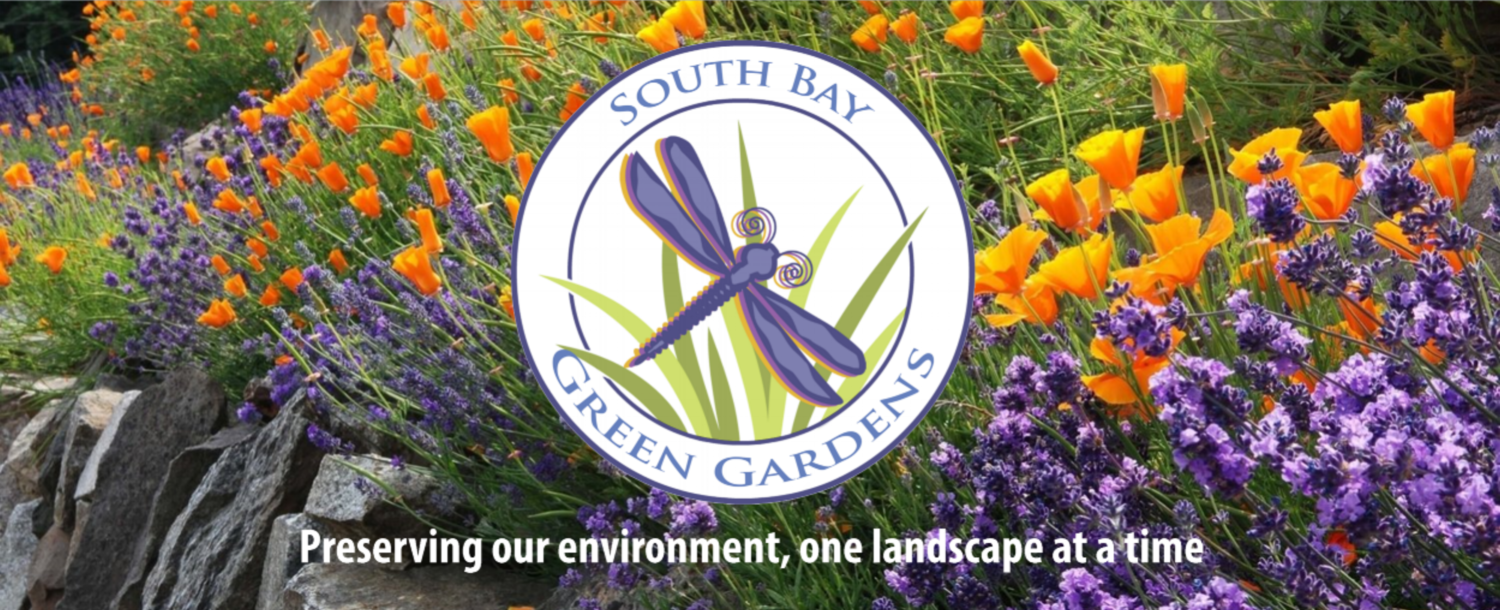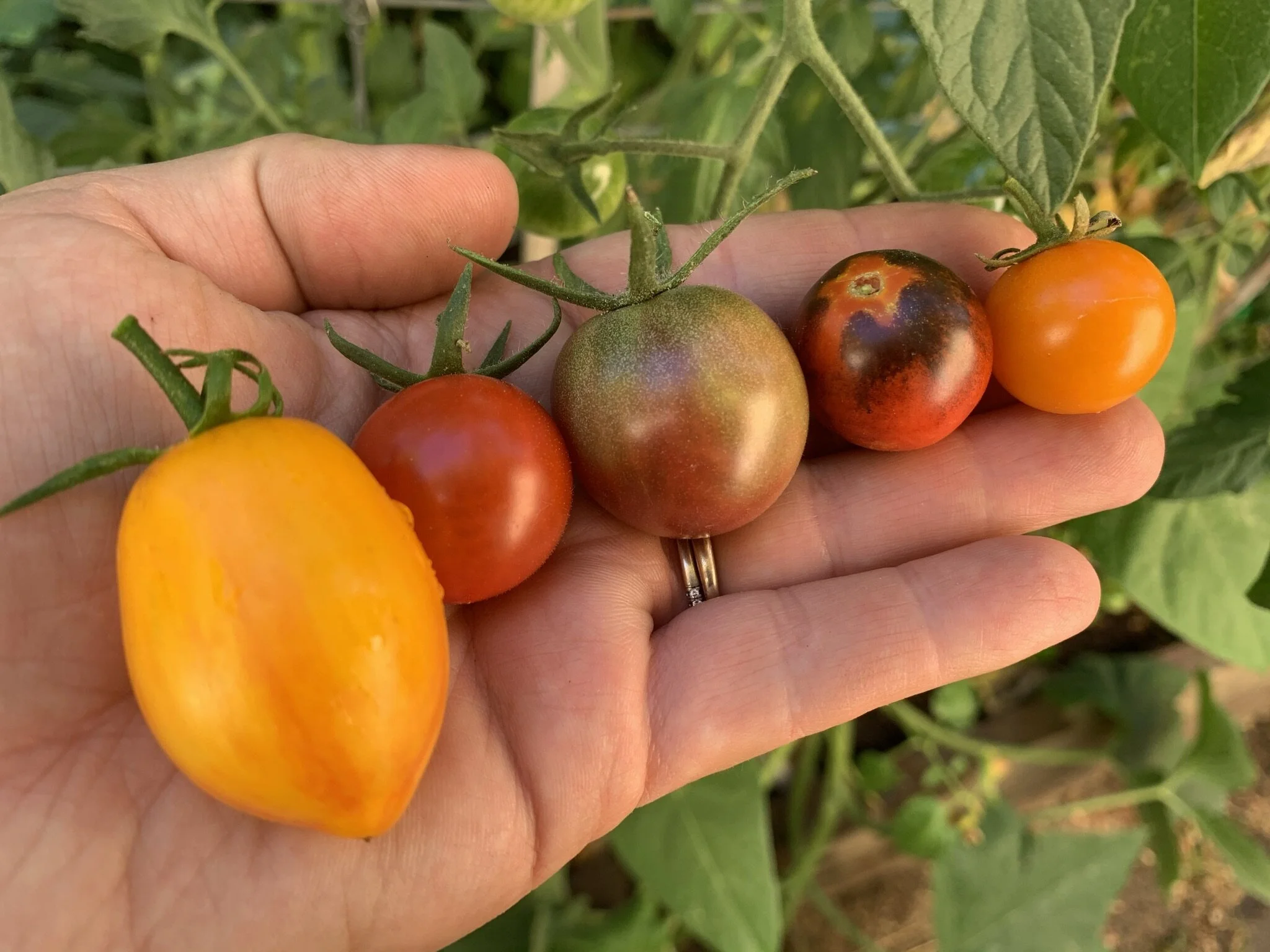Edible Gardening
Basics for planning your edible garden
Here in the Valley of Heart’s Delight, we are fortunate to have naturally great soil and plenty of sunshine. But there are still some important things to know. The UC Master Gardeners of Santa Clara County have a page on vegetable gardening basics to get you started. There is also a video to get you started here.
Composting - your edible garden’s best friend
Healthy soil is key to growing healthy and abundant vegetables and fruit. Our page on Soils, Mulch and Composting has all the information you need to make sure your garden will thrive.
How to water your edible garden wisely
Maintaining a beautiful, healthy vegetable garden can require a lot of water, but it doesn’t have to! Learn how to grow a water-efficient vegetable garden with the San José Public Library and Valley Water’s Water Conservation Specialists, Ashley Shannon and Justin Burks. In this primer on water conservation in the vegetable garden, you will learn about efficient irrigation equipment, rainwater capture, and graywater use to safely get more out of your garden with less water.
Share the Harvest
Do you have a bumper crop of zucchini? There are great resources out there to help you share your abundant harvest with the community. Ample Harvest is a website and an app that shows you were you can drop off extra produce in your community. It is a great way to share your extra tomatoes and zucchinis and help those who need it.
Do you have a fruit tree that produces more fruit than you can possible eat - or even pick? A wonderful non-profit organization, Village Harvest, can help with your harvest and get the fruit to local food banks. That is a win for everyone!
Less Toxic Pest Control
Here at South Bay Green Gardens, we are fans of all creatures great and small. But some critters overstay their welcome in our gardens, to put it kindly. Where do we turn to when we want to welcome the beneficial insects and discourage others?
Our Water, Our World is a wonderful resource for finding less-toxic products to use in our homes and gardens. On this website, you can find a wealth of material on finding pesticide alternatives, where to buy products, beneficial insects and much more. Check out their handy pocket guide to less toxic products for managing common pest.
Make Preserving Food Your Jam!
A great way to make your fruit and veggie harvest go farther is to start preserving your food. And why not? Santa Clara Valley was one of the centers of preserving food for many years due to our excellent soil and climate. The UC Master Food Preserver Program has a list of helpful resources to get you started.
Additionally, the USDA’s Complete Guide to Home Canning gives you everything you need to know about home canning and food preservation.
More Resources
La Mesa Verde is a leadership network of urban gardeners who build access to healthy food in San José. La Mesa Verde has classes, gardening tools and resources and so much more.
Valley Verde’s Community Food System (non-profit 501(3)(c) organization), promotes healthy eating and provides food access and micro-entrepreneurship training to low-income families of San José/Silicon Valley. Their urban agriculture model includes: Organic Gardening Classes and resources for setting home-based organic vegetable gardens; Super Jardineros (Super Gardeners) program, that trains families to grow seedlings in backyard greenhouses, creating their own micro-enterprise and generating disposable income; and The Finca - Urban Farm gathers the community around food, gardening and composting. It's here, in our own greenhouse were the multiethnic seedlings are grown for the families attending our programs as well as open sale.
Stop Food Waste
There are so many great reasons to reduce food waste in our community, starting with saving money. Shopping strategically, storing food correctly, and getting creative with leftovers can save a family of four an average of $1,600 a year.
This website, from the Bay Area Recycling Outreach Coalition, has an amazing amount of information on it about how to stop food waste, such as how to shop right, how to store your food the right way, and much more.









